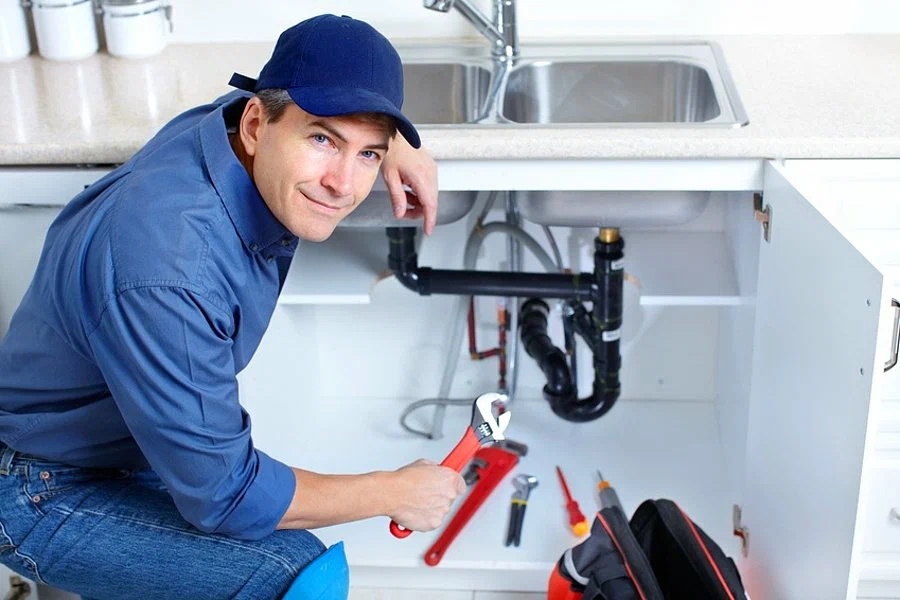Plumbing is an essential aspect of modern life, enabling the safe distribution of water and the effective removal of wastewater. While most people are familiar with general plumbing services, many may not realize that plumbing encompasses several specialized types. In this article, we will explore the three primary types of plumbing: residential plumbing, commercial plumbing, and industrial plumbing. Each type serves a unique purpose and requires specific knowledge and skills from the professionals who work within them.
1. Residential Plumbing
Definition and Scope
Residential plumbing refers to the plumbing systems found in homes, including single-family residences, townhouses, and apartment buildings. It is primarily concerned with providing clean water for drinking, cooking, bathing, and sanitation, as well as removing wastewater from the property.
Key Features
- Water Supply Systems: Residential plumbing includes the installation and maintenance of pipes, fixtures, and appliances that supply potable water to various parts of the home. This includes faucets, toilets, showers, sinks, and water heaters.
- Drainage and Waste Removal: Residential plumbers are responsible for ensuring that wastewater is effectively drained from the home. This involves installing and maintaining sewer lines, venting systems, and drainage pipes that carry waste away from the house.
- Common Services: Services provided under residential plumbing include leak repairs, drain cleaning, toilet installation, and water heater maintenance. Residential plumbers often respond to emergency calls for burst pipes, clogged drains, or malfunctioning fixtures.
Importance
Residential plumbing is vital for maintaining a comfortable and hygienic living environment. Properly functioning plumbing systems prevent health hazards associated with contaminated water and waste buildup. Regular maintenance and timely repairs are essential for preserving the integrity of these systems and ensuring their longevity.
2. Commercial Plumbing
Definition and Scope
Commercial plumbing refers to plumbing systems in commercial properties, including office buildings, retail spaces, restaurants, schools, and hospitals. This type of plumbing is typically more complex and larger in scale compared to residential plumbing.
Key Features
- Higher Demand: Commercial plumbing systems are designed to accommodate a higher volume of water usage and wastewater disposal. This often requires larger pipes, more fixtures, and advanced drainage systems.
- Specialized Equipment: Commercial plumbers often work with specialized equipment, such as grease traps, sump pumps, and backflow prevention devices, to meet the unique needs of businesses.
- Regulations and Codes: Commercial plumbing projects are subject to strict regulations and building codes to ensure safety and compliance with health standards. Commercial plumbers must be well-versed in these regulations and work closely with local authorities.
Common Services
Commercial plumbing services include installing and maintaining plumbing fixtures, conducting routine inspections, handling drain cleaning, and providing emergency repairs. Additionally, commercial plumbers may be responsible for installing water filtration systems and ensuring compliance with health regulations.
Importance
Effective commercial plumbing is crucial for the smooth operation of businesses. Malfunctioning plumbing can disrupt services, lead to costly repairs, and create unsanitary conditions. Regular maintenance and prompt repairs are essential for ensuring that commercial plumbing systems function efficiently and remain compliant with regulations.
3. Industrial Plumbing
Definition and Scope
Industrial plumbing involves plumbing systems in large-scale industrial facilities, such as factories, manufacturing plants, warehouses, and processing facilities. This type of plumbing is often the most complex and specialized, requiring a deep understanding of industrial processes.
Key Features
- Heavy-Duty Systems: Industrial plumbing systems are designed to handle heavy loads and high-pressure environments. They often include larger pipes, valves, and fittings that can withstand the demands of industrial applications.
- Specialized Knowledge: Industrial plumbers must have a thorough understanding of the specific processes and equipment used in industrial settings. This may include knowledge of chemical processes, steam systems, and waste treatment facilities.
- Safety and Compliance: Industrial plumbing work is subject to stringent safety standards and regulations. Industrial plumbers must be trained to handle hazardous materials and comply with environmental regulations.
Common Services: Types of Plumbing
Services provided by industrial plumbers include the installation and maintenance of large-scale piping systems, boiler systems, water supply and drainage systems, and specialized equipment such as cooling towers. Industrial plumbers may also conduct routine inspections and repairs to ensure system reliability.
Importance: Types of Plumbing
Industrial plumbing is critical for the efficient operation of manufacturing and processing facilities. Properly functioning plumbing systems ensure the safe handling of materials, the efficient disposal of waste, and compliance with environmental regulations. Regular maintenance and inspections are essential to prevent costly downtimes and safety hazards.
Conclusion
In summary, plumbing encompasses three primary types: residential, commercial, and industrial plumbing. Each type serves a specific purpose and requires specialized knowledge and skills to ensure the efficient and safe operation of plumbing systems. Understanding the differences between these types of plumbing can help homeowners and business owners recognize their plumbing needs and the importance of hiring qualified professionals for their specific plumbing requirements. Whether you need a simple repair at home or complex installations for an industrial facility, the right plumbing services are crucial for maintaining a functional and safe environment.
TEKCOOL 35 Feet Long LED Power Pixel Serial String Light, 360 Degree Light in Bulb | Copper Led Pixel String Light for Home Decoration,Diwali,Christmas(Multi) Pack of 1
₹119.00 (as of 22 October, 2024 18:23 GMT +05:30 - More infoProduct prices and availability are accurate as of the date/time indicated and are subject to change. Any price and availability information displayed on [relevant Amazon Site(s), as applicable] at the time of purchase will apply to the purchase of this product.)Desidiya 12 Stars 138 Led Curtain String Lights Window Curtain Lights with 8 Flashing Modes Decoration for Christmas, Wedding, Party, Home, Patio Lawn Warm White (138 Led-Star, Copper, Pack of 1)
₹289.00 (as of 22 October, 2024 18:22 GMT +05:30 - More infoProduct prices and availability are accurate as of the date/time indicated and are subject to change. Any price and availability information displayed on [relevant Amazon Site(s), as applicable] at the time of purchase will apply to the purchase of this product.)ATOM Digital Kitchen Food Weighing Scale For Healthy Living, Home Baking, Cooking, Fitness & Balanced Diet. | 1 Year Warranty | 10Kg x 1gms with 2 Batteries Included, SF400/A121, Color May vary
₹189.00 (as of 22 October, 2024 18:22 GMT +05:30 - More infoProduct prices and availability are accurate as of the date/time indicated and are subject to change. Any price and availability information displayed on [relevant Amazon Site(s), as applicable] at the time of purchase will apply to the purchase of this product.)VYOOx Bathroom Cleaning Brush with Wiper, 120° Rotating Brush and Long Handle, 2-in-1 Floor Scrub and Tile Cleaning Brush (Pack of-1)
₹198.00 (as of 22 October, 2024 18:23 GMT +05:30 - More infoProduct prices and availability are accurate as of the date/time indicated and are subject to change. Any price and availability information displayed on [relevant Amazon Site(s), as applicable] at the time of purchase will apply to the purchase of this product.)One94Store Artificial Leaf Curtain Led String Light,200 LEDs,8 Modes,Remote Control,Adjustable Brightness,Ac Plug - for Home (Warm White,3X2 Meter) - Copper
₹329.00 (as of 22 October, 2024 18:22 GMT +05:30 - More infoProduct prices and availability are accurate as of the date/time indicated and are subject to change. Any price and availability information displayed on [relevant Amazon Site(s), as applicable] at the time of purchase will apply to the purchase of this product.)Discover more from The General Post
Subscribe to get the latest posts sent to your email.





